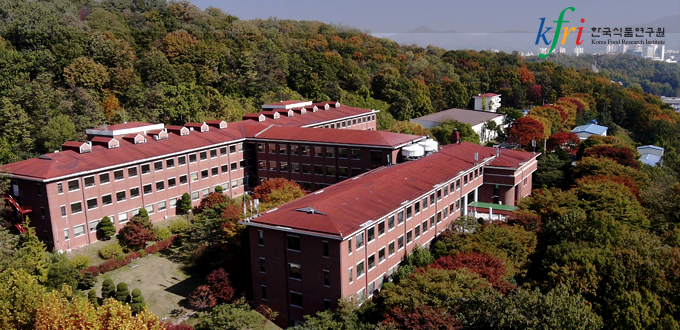Korea Food Research Institute (KFRI)
- Korea Institute of Science and Technology (KIST)
- National Institute of Green Technology (NIGT)
- Korea Basic Science Institute (KBSI)
- Korea Astronomy and Space Science Institute (KASI)
- Korea Research Institute of Bioscience and Biotechnology (KRIBB)
- Korea Institute of Science and Technology Information (KISTI)
- Korea Institute of Oriental Medicine (KIOM)
- Korea Institute of Industrial Technology (KITECH)
- Electronics and Telecommunications Research Institute (ETRI)
- National Security Research Institute (NSRI)
- Korea Institute of Civil Engineering and Building Technology (KICT)
- Korea Railroad Research Institute (KRRI)
- Korea Research Institute of Standards and Science (KRISS)
- Korea Food Research Institute (KFRI)
- World Institute of Kimchi (WIKIM)
- Korea Institute of Geoscience and Mineral Resources (KIGAM)
- Korea Institute of Machinery and Materials (KIMM)
- Korea Aerospace Research Institute (KARI)
- Korea Institute of Energy Research (KIER)
- Korea Electrotechnology Research Institute (KERI)
- Korea Research Institute of Chemical Technology (KRICT)
- Korea Institute of Toxicology (KITOX)
- Korea Atomic Energy Research Institute (KAERI)
- Korea Institute of Materials Science (KIMS)
- Korea Institute of Fusion Energy(KFE)

Korea Food Research Institute (KFRI)
R&D, public interest value creation, results dissemination, and technical support in the food sector
| President | Baek, Hyung-Hee |
|---|---|
| Establishment Date | 1987.12.31 |
| Location | KFRI, 1201-62, Anyangpangyo-ro, Bundang-gu, Seongnam-si, Gyeonggi-do |
| Contact | 063-219-9114 |
| Homepage | eng.kfri.re.kr |
Key Functions
- To research and develop food functionality, new materials and new processes source technology
- To research and develop foundation technology centered on food storage, distribution, and safety
- To research and develop globalization of traditional foods, food analysis, information, and standardization
- To provide technical support and commercialization for food SMEs, and R&D of strengthening public functions
- To assist technology policy planning, test and evaluation certification, human resource development, and technical services
Recent achievements
- Globalization of traditional foods: study of diabetes prevention effect of cheonggukjang and anti-cancer effect of rice wine, and introduction of national standards for the hotness evaluation
- High value addition of the food industry: development of substance to control the saltiness and sleep promotion material derived from natural products, and watermelon lycopene extraction and water technology
- High-quality food production system: clean pepper powder production system, comprehensive rice treatment plant standard model, and continuous ginger washing and peeling technology development
- Safe and secure supply distribution of food: development of rapid harmful microorganisms detection technology and nano-biosensor for multiple simultaneous detection, and development of rapid mold toxins detection method

 Search
Search